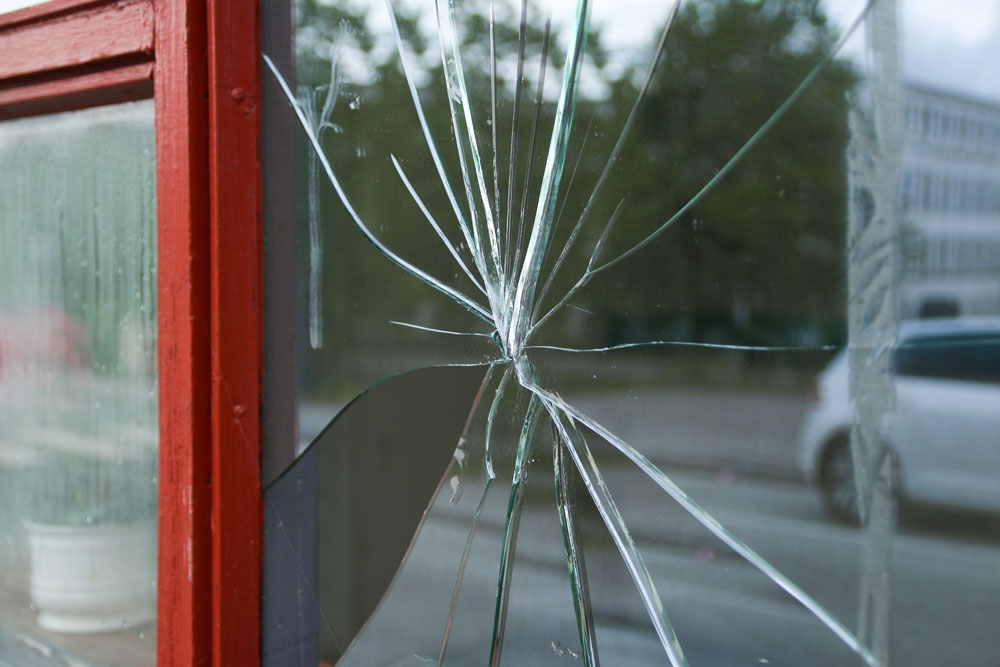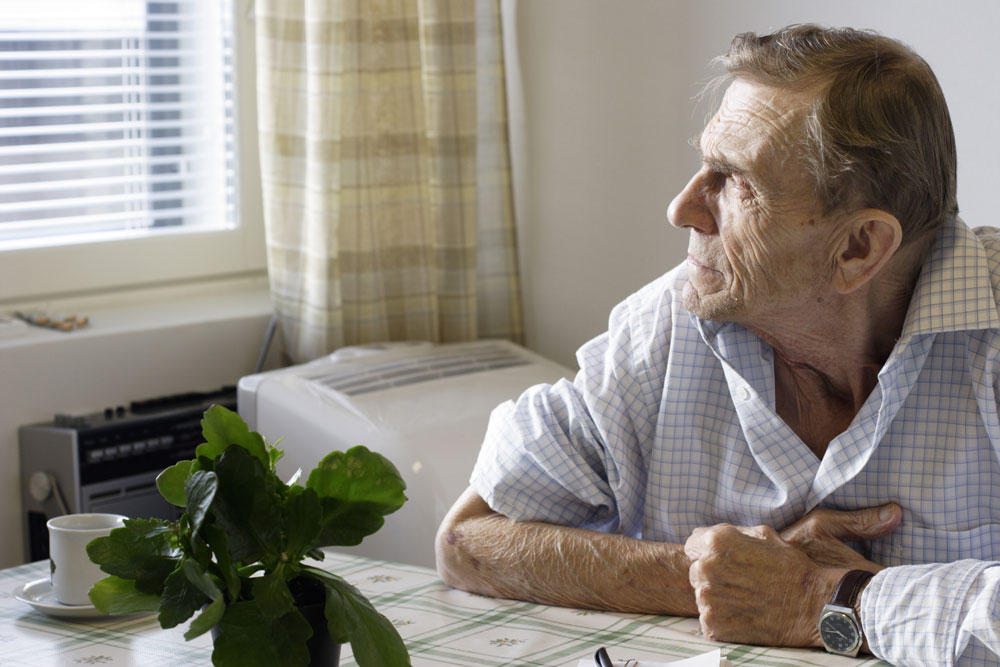Prevent and manage operational disruptions at the nursing home: Effective strategies for continuity and security
This article is written based on Swedish conditions. Hopefully, it can inspire those interested from other countries.
Interruptions in electricity, water or internet, blockages in sewage, errors in food deliveries can create chaos in a nursing home. By having well-planned and thoughtful strategies to prevent and manage operational disruptions, nursing homes can create a safe and stable environment for both residents and staff. Being prepared for various scenarios and having effective measures in place can reduce the risk of serious consequences and ensure continuity in the care of the elderly.
 Foto: Mostphotos
Foto: MostphotosInterruption Procedures
Doors and windows break, toilets get blocked, a fuse goes and parts of the residence are without electricity. At one nursing home, the broadband stopped working relatively often and the staff had to go down to the basement daily to restart the router.
Another nursing home lost power at five in the morning. One consequence was that all doors to the residents' apartments were locked. There was a master key to the residence that housed over sixty people. The master key couldn't be accessed because the lock to it was also electrically controlled. Now the power came back on around seven. If the power outage had occurred around seven on Sunday morning, it would have had completely different consequences. Staff who couldn't get into the changing rooms and couldn't help the residents. No one would have been able to access any medications.
Heatwave
Almost every summer there comes a period that is characterized as a heatwave. It affects the elderly to a great extent. Yet, few nursing homes are built to provide a comfortable indoor climate regardless of the season. The staff must therefore have good routines to deal with heatwaves.
Healthcare units often lack air conditioning. One hot summer day when I slipped into ICA and felt that it was cool and comfortable in the store. It was pleasant for us who were there. Then I was going to visit my sick granddaughter, Saga, who was cared for at a hospice. There it was 30 degrees hot. The patients suffered in the heat. Newspaper reports came daily from nursing homes, hospitals, and emergency departments where both staff and patients suffered from the heat.
My granddaughter had a close friend who had made sure she could borrow a cooling unit, which meant that Saga's ward was comfortable these hot days, but for most others who receive care, it's not like that. It should not be the case that it is the contacts that determine whether someone gets coolness or not. I have often asked myself why it is not a basic requirement that healthcare units have air conditioning. For ICA and COOP, it seems to be a matter of course.
Heatwaves kill people. When I worked in long-term care at the end of the summer of 1976, it was 33 degrees indoors. Nine patients died in a week. Patients with heart disease, lung disease, and kidney disease are at greatest risk, but also people with diabetes, obesity, disability, neurological disease, mental illness, and dementia have an increased risk. In addition, some drugs can have serious side effects during a heatwave.
SMHI issues a message for local measures to be put in place when the temperature is expected to be at least 26 degrees for 3 days in a row. The elderly and chronically ill are especially vulnerable. During a heatwave, there is general advice for healthcare and care staff:
- Pay attention to the indoor temperature.
- Close curtains, blinds, and pull down awnings.
- Encourage increased fluid intake.
- Alcoholic and sweet drinks should be avoided on very hot days.
- Cool showers are effective, alternatively a wet towel around the neck.
- Physical activity should be reduced during the hottest hours.
- Contact a nurse if anyone shows signs of increased pulse, body temperature, increased breathing rate, dizziness fatigue, dry mouth, or decreased urine volumes. Too little fluid intake leads to the blood becoming more concentrated and the risk of blood clot increases.
Preventing and Managing Operational Disruptions in Nursing Homes: Effective Strategies for Continuity and Safety
Operational disruptions in nursing homes can be a source of concern for both residents and staff. Having effective strategies to prevent and manage these disruptions is critical to ensuring a safe and stable environment for the elderly. Here are some measures that can help minimize the risk of operational disruptions and mitigate their effects if they occur.
Risk analysis and contingency plans: By conducting regular risk analyses, nursing homes can identify potential threats and vulnerabilities in their operations. Based on these analyses, contingency plans can be developed to handle different types of operational disruptions, such as power outages, water leaks, or IT-related problems. Have you done a risk analysis?
- Power outage
- Burglary
- Broken window panes
- Blocked drain
- Broken water pipe
- The car that delivers food crashes
- Internet outage
- Elevators that stop working
Are there other operational disruptions that could cause serious disruptions in operations?
Education and training: It is important that the staff is well prepared to handle different scenarios during an operational disruption. Through regular education and training in crisis management and safety protocols, the staff can feel more confident in acting effectively in stressful situations.
Technical infrastructure: Having a robust technical infrastructure is crucial to reduce the risk of operational disruptions. This includes regular maintenance of electrical systems, plumbing systems, and IT infrastructure to prevent potential problems.
Communication and information: Clear and regular communication with both residents and their relatives is important to inform about any operational disruptions and what measures are being taken to resolve them. It is also important to have alternative communication channels in case the usual communication infrastructure fails.
Reflection - special events
Care staff:
• Do you feel confident about what to do if there is an operational disruption?
• Do you have good preparedness and well-informed employees for the summer regarding routines during a heatwave?
• Do you have functioning routines if a serious operational disruption occurs?
Manager, nurse, occupational therapist, and physiotherapist:
• Is there an action plan that is known and works around the clock for unexpected operational disruptions in operations?
• Is there good preparedness for a heatwave?
• Is there an opportunity to cool the premises if the need arises?
Residents and relatives:
• Do you see any other risks than those mentioned?
• Does the residence have good routines and conditions to handle a heatwave?
Erland Olsson
Specialist Nurse
Sofrosyne
Better care every day

Aktuellt i media
-
2026-01-08 04:00
13 Hygien
By changing work clothes at least once a day, the risk of spreading infection decreases.
info Foto: Mostphotos
Foto: Mostphotos - 2025-12-29 04:00 08 Förebyggande o lokaler
-
2025-12-18 04:00
16 Sjukdom och död
Survivor conversations - an important element in working with next of kin
info Bild från Summer Stock
Bild från Summer Stock - 2025-12-15 04:00 17 Psykisk hälsa
- 2025-12-11 04:00 07 Riskhantering
- 2025-12-08 04:00 06 Dokumentation





